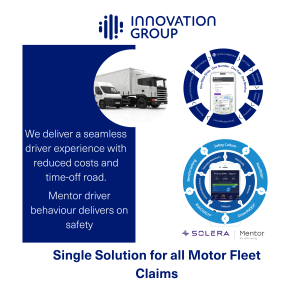AfMA’s Executive Director Mace Hartley is currently in Singapore attending the 3rd Annual Vehicle Fleet Management Conference.
I had the privilege of chairing day 1 of this conference where we heard from 8 speakers from Malaysia, Singapore and yours truly from Australia. It seems the challenges of fleet management are the same in many countries. The conference had attendees from Malaysia, Singapore, Dubai, Kuwait, Ghana and of course Australia.
My topic was Safety Beyond the Metal where I discussed selecting the safest vehicle using ASEAN NCAP and the subtleties of selecting additional safety equipment such as autonomous emergency brakes (AEB) to assist in reducing nose to tail accidents given the average repair costs can be as high as $9,000. I reminded delegates of their WHS obligations across Malaysia, Singapore and the Philippines and discussed what constitutes WHS compliance, leadership and safety culture. Delegates were provided with AfMA’s Fleet Safety Management Audit Tool to enable them to self-assess their organisations safety maturity.
Next we reviewed a video animation of John Smith – A Normal Day Out of the Office and explored what went wrong and what vehicle-related policies/procedures may have prevented the tragedy depicted in the video.
Perhaps one of the highlights was hearing from Ir Zuhairi Yusoff the General Manager of Radifleet Sdn Bhd, Malaysia.

Imagine being a Fleet Management Company (FMO) where you win a 25 year agreement to service 1,500 ambulances across all of Malaysia and whilst you don’t fund the vehicles or hold any residual risk you have to manage and maintain the fleet including all repairs but the annual maintenance fee you get doesn’t change. Whilst it doesn’t change it is a fixed percentage of the vehicles purchase price however the average age of the vehicles was 17 years until around 5 years ago.
The good news about winning a 25 year concessions agreement is you know you’ve got the business although the income isn’t changing however the cost of maintenance parts and labour does. This has led Radifleet to develop its own synthetic oils and vehicle battery’s. The oil resolved a number of issues as vehicles were experiencing engine problems due to limitations of mineral based oils and the cost of their own synthetic blend is 60 per cent cheaper. Further, after proving the quality in their own vehicles, they were able to sell this oil to other fleets and make a margin whilst delivering them savings.
Other topics covered during day 1 included Big Data and IoT, In-House vs Outsourcing, Simplifying Complexities in Fleet Management and Maintenance and a case study from DHL eCommerce in Malaysia who’s B2C business has seen almost 300% growth in the last 18 months, now there’s a challenge!











